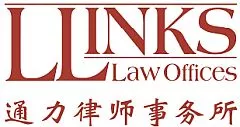- within Employment and HR topic(s)
- in China
- within Employment and HR topic(s)
- with Senior Company Executives, HR and Finance and Tax Executives
- in China
- with readers working within the Accounting & Consultancy, Basic Industries and Insurance industries
Spotlight on News
- The Supreme People's Court issued the Interpretation (II) of the Supreme People's Court on Issues Concerning the Application of Law in the Trial of Labor Dispute Cases along with six representative labor dispute cases, clarifying contentious issues to foster the development of labor relations.
- The Ministry of Human Resources and Social Security released the Interim Provisions on the Protection of Basic Rights and Interests of Over-Age Workers (Draft for Public Comment) to seek public opinions on safeguarding the rights and interests of workers beyond statutory retirement age.
- Beijing Municipal People's Procuratorate issued the Guidelines for Trade Secret Protection and Risk Prevention, summarizing common issues identified in cases involving trade secrets infringement.
Legislation Updates
- The Ministry of Commerce issued the Guidelines for Overseas Integrity and Compliance of Enterprises to promote the development of the compliance management system for enterprises operating overseas under the "Belt and Road" Initiative.
- Five municipal authorities in Shanghai jointly promulgated a significant policy to support childbirth: a 50% subsidy of social security payment will be granted from the month of birth.
Case Study
- Shanghai Third Intermediate Court has sentenced 14 Huawei's former employees to prison and imposing fines of RMB 13.5 million for infringement on trade secrets of HiSilicon's chip.
- Suzhou Intermediate People's Court: an employee was fined RMB 60,000 due to violation of the court's non-compete injunction by working for a rival firm.
- Beijing Second Intermediate People's Court released typical cases of commingling of assets in single-shareholder companies: the sole shareholder shall bear joint and several liability for the company's debts when unable to prove the independence of personal assets.
Spotlight on News
- The Supreme People's Court issued the
Interpretation (II) of the Supreme People's Court on Issues
Concerning the Application of Law in the Trial of Labor Dispute
Cases along with six representative labor dispute cases,
clarifying contentious issues to foster the development of labor
relations.
The Supreme People's Court issued the Interpretation (II) of the Supreme People's Court on Issues Concerning the Application of Law in the Trial of Labor Dispute Cases (the "Judicial Interpretation II") along with six accompanying representative labor dispute cases(the "Representative Cases"). The Judicial Interpretation II will take effect on September 1, 2025.
In recent years, labor disputes involving non-compete agreements, mixed employment arrangements among affiliated enterprises, and social security payment have occurred frequently. The Judicial Interpretation II refines the application of relevant legislations and provides critical guidance for reviewing key issues. It has also unified the adjudication standards for common and frequent practical issues, such as the validity of non-compete clauses, determination of scenarios where labor contracts are unable to be performed, as well as employers' failure to contribute to social security, safeguarding the workers' interests. Furthermore, the Judicial Interpretation II introduces new perspectives on the conclusion of open-ended employment contracts, the definition of labor rights for foreign employees located in China, and the protection of workers' rights beyond the statutory retirement age, offering innovative statutory solutions to real-world disputes.
The Representative Cases closely align with the core provisions of the Judicial Interpretation II, systematically integrating local courts' research on complex matters of labor disputes into adjudication of certain claims. These Representative Cases have reflected the exploration and invention of judicial practice, bringing out the transition of legal application from theoretical basis to practical situations.
The Corporate Compliance Team of Llinks Law Office has conducted a comprehensive analysis of the key provisions of Judicial Interpretation II and the corresponding new adjudication rules, providing practical compliance suggestions from lawyers' perspective. For further details, please refer to our WeChat official account article titled China's New Labor Rules: Key Provisions, Corporate Impacts, and Compliance Strategies.
- The Ministry of Human Resources and Social Security
released the Interim Provisions on the Protection of Basic
Rights and Interests of Over-Age Workers (Draft for Public
Comment) to seek public opinions on safeguarding the rights
and interests of workers beyond statutory retirement age.
The Ministry of Human Resources and Social Security issued the Interim Provisions on the Protection of Basic Rights and Interests of Over-Age Workers (Draft for Public Comments) (the "Interim Provisions") on July 31, 2025, aiming to protect the interests of workers beyond the statutory retirement age and clarify the rights and obligations of employers and employees. The Interim Provisions has been released for public feedback until August 31, 2025.
The Interim Provisions breaks through the traditional definitions of labor relations and service relationships by establishing the concept of "employment relationships for over-age workers." It specifies the basic rights of elderly workers, strengthening defenses for over-age workers' access to remuneration, rest and leave, occupational safety and health, protection of work-related injuries, and further clarifies legal application of employment relationships during the flexible deferred retirement age.
In addition, the Interim Provisions has unblocked the rights-protection channels for over-age workers involved in labor disputes, and thereby establishes a dispute resolution mechanism. Over-age workers may protect their rights and interests through labor dispute mediation and arbitration, filing lawsuits to courts, or raising complaints towards human resources and social security authorities.
- Beijing Municipal People's Procuratorate issued the
Guidelines for Trade Secret Protection and Risk
Prevention, summarizing common issues identified in cases
involving trade secrets infringement.
Beijing Municipal People's Procuratorate issued the Guidelines for Trade Secret Protection and Risk Prevention (the "Guidelines") on August 12,2025 in response to common issues identified in cases involving trade secret infringement, intending to reinforce the protection of trade secrets.
The Guidelines recommends that relevant developers and operators promptly determine whether specific information enjoys secrecy and commercial value, and whether corresponding confidentiality measures have already been implemented. By accurately distinguish the characteristics of trade secrets—non-public knowledge, confidentiality, and value—companies are able to elucidate the scope of information and rights ownership which need to be protected, and reasonably decide whether to protect such information as trade secrets. To prevent risks during research development and business operations, it is recommended to adopt ongoing and targeted management measures such as "limited access" and "reasonable disclosure", while enhancing the supervision of confidential carriers and secure areas. For technical or business information provided by employees or former employees from suspected competing firms, entities should confirm the authenticity of the information and refrain from using any technical or operational details obtained through infringement of trade secrets.
According to the Guidelines, rights owners should concentrate on preserving written evidence which demonstrates the research and development process, implementation of confidentiality measures, and direct or indirect economic losses in their daily management. Such evidence includes but is not limited to project approvals, research and development documentation, cost details and relevant contracts. In the event of trade secret infringement, rights owners may choose one or multiple paths for safeguarding their rights based on the actual circumstances, including administrative complaints, civil trials and criminal reports.
Legislation Updates
- The Ministry of Commerce issued the Guidelines for
Overseas Integrity and Compliance of Enterprises to promote
the development of the compliance management system for enterprises
operating overseas under the "Belt and Road"
Initiative.
The Ministry of Commerce issues the Guidelines for Overseas Integrity and Compliance of Enterprises (the "Integrity and Compliance Guidelines") on June 13, 2025. The Integrity and Compliance Guidelines mainly applies to enterprises engaged in economic cooperation activities such as global investment, overseas contracted projects, international labor cooperation and foreign aid. The announcement of Integrity and Compliance Guidelines is a milestone of developing the integrity of the Silk Road, leading the "going global" enterprises in advancing the integrity and compliance management systems by profound knowledge of domestic and international anti-corruption laws and regulations as well as relevant international rules, and ensure integrity and compliance in their business overseas.
According to the Integrity and Compliance Guidelines, enterprises conducting overseas operations shall undertake primary responsibility for integrity and compliance. Enterprises are also encouraged to actively guide and support their overseas branches in joining chambers of commerce or industry associations for Chinese enterprises in the host country or region, and to voluntarily adhere to self-regulatory rules of the industry. Meanwhile, enterprises shall establish and improve their integrity and compliance management systems, including but not limited to organizational structures, management policies, culture of integrity, oversight and accountability mechanisms with clearly defined integrity and compliance standards and procedures. The Integrity and Compliance Guidelines further stipulates that shareholders, actual controllers, board directors, supervisors, and management personnel shall set an example by making integrity and compliance commitments. Enterprises are encouraged to strengthen education for employees assigned overseas, conduct regular integrity and compliance training for all staff and sign liability statements to ensure obedience to the requirements of integrity and compliance.
Furthermore, enterprises shall enhance internal assessment and evaluation mechanisms for integrity and compliance, linking assessment results to employees' occupation adjustments, promotions, compensation and performance awards. Employees who violate integrity and compliance policies shall be held responsible in accordance with relevant regulations. The Integrity and Compliance Guidelines particularly emphasizes that relatively high integrity and compliance risks will be involved in the following scenarios: offering or accepting items prohibited from circulation by local laws, regulations, or international treaties, cash, shopping cards, consumption cards, cash equivalents, other valuables, shares, stocks, bonds, etc.; arranging or accepting arrangements for travel, fitness entertainment, watching commercial performances or sports events; providing gifts and hospitality to interested parties; or embezzling funds under the pretext of false gifts and hospitality.
To view the full article, click here.
The content of this article is intended to provide a general guide to the subject matter. Specialist advice should be sought about your specific circumstances.


